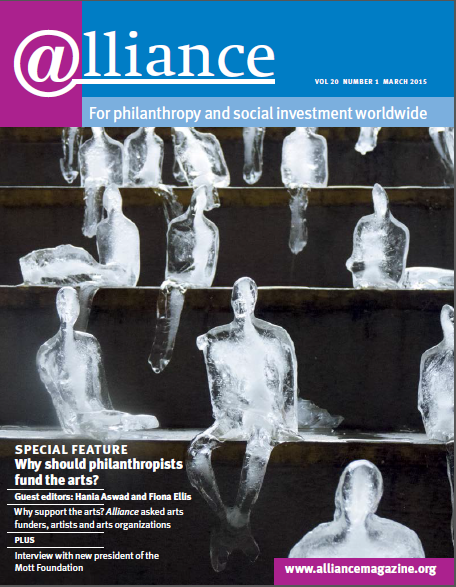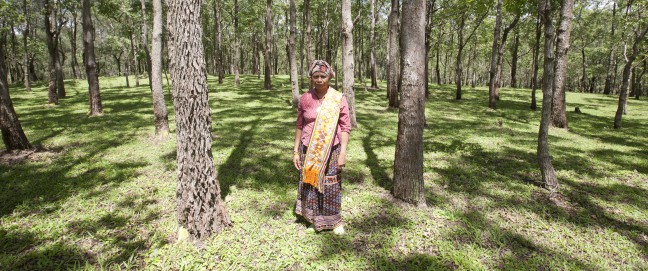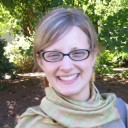In 2004, young Egyptians working in the development field set up Nahdet el Mahrousa (meaning ‘renaissance of Egypt’ in Arabic), the Middle East’s first incubator of early stage social enterprises. Nahdet el Mahrousa has since supported over 30 social enterprises in Egypt. That same year, Tarek Ben-Halim, a Libyan-Palestinian investment banker, established the Arab world’s first venture philanthropy organization, Alfanar (meaning ‘beacon’ in Arabic).
Alfanar has since invested in 18 social purpose organizations.
At the time, venture philanthropy was an unfamiliar concept in the Arab world. Now, a mixture of international and Arab-grown organizations are actively supporting high-impact social purpose organizations, both non-profit and for-profit. These include Ahead of the Curve, the American University in Cairo’s Gerhart Center for Philanthropy and Civic Engagement, the Arab Foundations Forum, Ashoka Arab World, the Emirates Foundation, MC Egypt, Ruwwad Microventures, Drosos, Silatech, Synergos and SAANED. Civil society across the region is increasingly employing strategies for impact and social change that present opportunities for financial sustainability, cost recovery and self-reliance.
At Alfanar, we help our investees to strengthen their social impact while supporting them to generate growing financial returns for themselves, ensuring that our donor-investors are deploying their capital for lasting effect on lives and communities. Impact investing, an impact-first approach, takes things one step further by securing both social and financial returns for investors.
In 2007, Alfanar began investing in the Future Lights for Development Organisation (FLDO), providing it with seed funding and management support to establish the first Montessori-style pre-school in a Cairo slum. This nursery has achieved a 125 per cent increase in enrolment and can now recover all of its costs through fees. Alfanar has exited this component of its investment, certain that the nursery school will continue to effectively serve its community.
In addition, through training and its work with parents to ensure that children are supported both at school and at home, FLDO has had an impact on the lives of over 5,150 children, pre-school principals, teachers, assistants and parents. However, it has been largely dependent on donations to conduct this training work.
In December 2014, Alfanar conducted its first-ever study mission, taking two of its education investees, including FLDO, to Bangalore, India. We introduced FLDO to the innovative Hippocampus Learning Centres (HLC), which establishes and runs affordable, fully sustainable pre-schools in rural Bangalore. In addition to tuition fees, HLC also generates revenue through its teacher training programme. The interaction with another education social enterprise successfully working in a different but equally difficult environment provided FLDO with the example and drive needed to adapt and structure its own revenue model for sustainability. Alfanar has just completed a three-year business planning process with FLDO that introduces new strategies inspired by HLC and identifies a clear break-even target for its early learning training work in poor communities.
Despite this example, there are few social enterprises in the Arab region that are actively working towards break-even or preparing themselves for investment that expects a financial return. In a study[1] of the appetite among social enterprises in Lebanon for financing beyond grants, we observed interest in loans, but also a reticence to take them on owing to lack of understanding and confidence. Much work is still needed to prepare social enterprises in the region for investments requiring both social and financial returns.
Greater cooperation between social enterprise incubators, aggregators, donors and investors is needed to ensure that social enterprises in the Arab world receive appropriate financing, management support and exposure to successful models from other regions of the world so that they can advance from grant funding to impact investment. While this proposition is true for any region, it is especially true of the Arab world where recurring violence and political instability so often force social purpose organizations to focus on short-term interventions, hampering them from achieving longer-term goals. This is why Alfanar and its peers must work together over the coming ten years to build a virtuous value-creating ecosystem that takes change agents to scale, sustainability and beyond.
Myrna Atalla is Alfanar executive director and Teresa Chahine is Alfanar Lebanon country director. Emails myrna@alfanar.org.uk and teresa@alfanar.org.uk
Lead image: a FLDO pre-school. Photo by FLDO
Footnotes
- ^ [1]Teresa Chahine and Zeina Farhat, ‘Fueling Financial Innovation in the Middle East’, Stanford Social Innovation Review, 15 January, 2015. See www.alfanar.org/news




Comments (0)